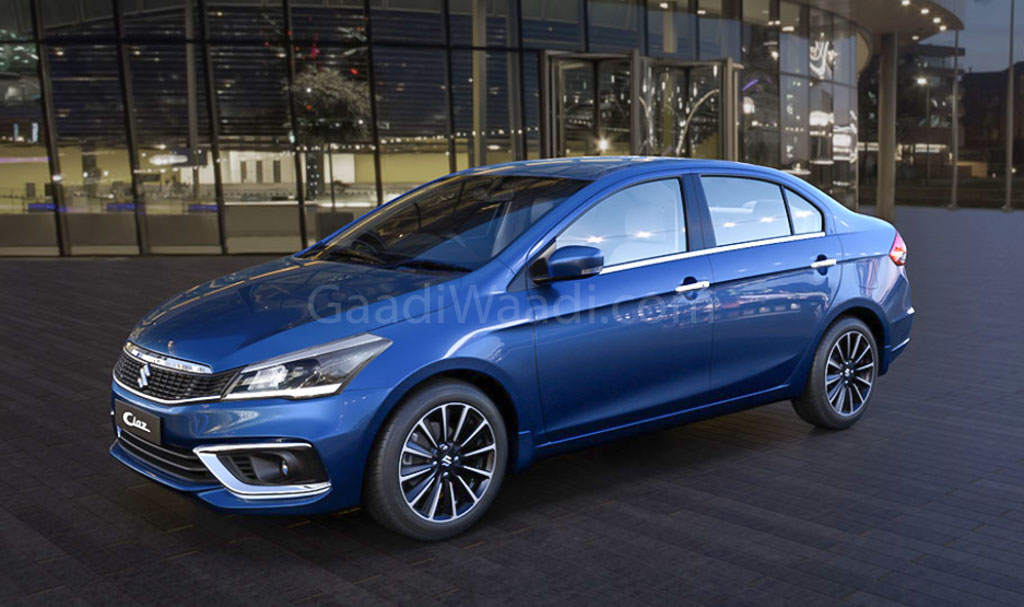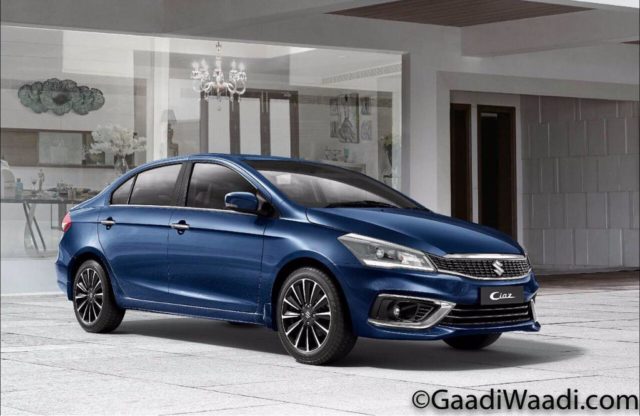
Maruti Suzuki Ciaz will get a brand new 1.5-litre DDiS 225 diesel engine with more power and torque from next month
Maruti Suzuki India Limited (MSIL) has the Ciaz midsize sedan as one of its top sellers in the domestic market. Having received a facelift in August 2018, the C-segment model has reassured its dominance in the segment and is primed to get a brand new diesel engine from next month. Maruti Suzuki opted not to replace the tried and tested 1.3-litre DDiS 200 upon launching the mid-life update.
However, the 1.4-litre petrol engine made way for a 1.5-litre K15B four-cylinder SHVS unit with more power and torque along with increased fuel efficiency, and it has a dedicated dual-battery setup to distinguish itself as a more serious mild-hybrid system. The continued 1.3-litre diesel mill, however, is being departed for a newly developed bigger 1.5-litre version.
While the Ciaz along with S-Cross and Ertiga were expected to get the new engine just before the BSVI deadline, it has come as a little surprise but there is a definitive catch. The upcoming 1,498 cc four-cylinder diesel DDiS 225 is not a smart hybrid engine and it produces 5 PS and 25 Nm more than the 1.3L version.
Developing 95 PS at 4,000 rpm and 225 Nm between 1,500 and 2,500 rpm, it is mated to an all-new six-speed manual transmission with 26.82 kmpl claimed fuel economy. The absence of SHVS tech meant that it is less frugal than the 1.3L oil burner (28.09 kmpl). The largest automaker in the country will likely introduce the same engine in the S-Cross and Ertiga as well.
The new 1.5-litre diesel has lighter yet robust construction and it will offer smoother driving experience. Moreover, the NVH levels have been lowered for ensuring a quieter cabin compared to the 1.3 SHVS unit, which will likely be continued in the entry-level variants. The all-new bigger engine will instead be sold in Delta, Zeta and Alpha variants.
The addition of the new powertrain is part of Maruti Suzuki’s preparation ahead of BSVI conversion. Going with the industry trend, the Indo-Japanese manufacturer is facing high demands for petrol models while the diesel vehicles have seen a drastic reduction in popularity due to high fuel pricing and prevailing negative sentiments.

